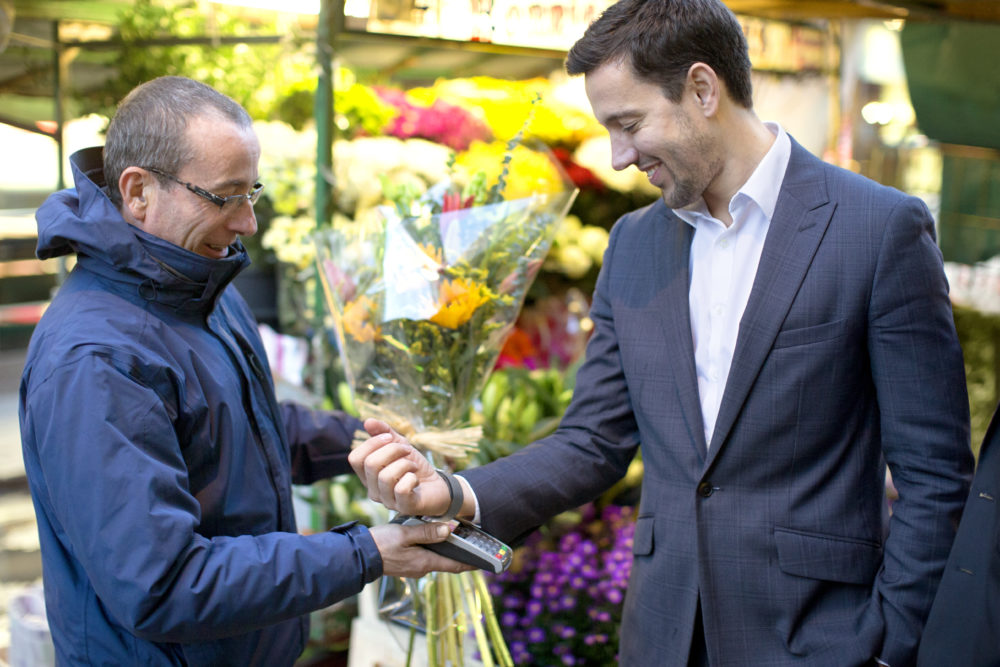- Growth in consumer spending slowed in February to 3.3 per cent, continuing a downward trend since the start of the year
- Valentine’s Day treats and half-term activities dominated February spend, with restaurants, pubs, hotels and cinemas all performing strongly
- Confidence in the UK economy and in job security has fallen sharply in the last three months as worries about the wider economy take root
Consumer spending grew by 3.3 per cent in February, the second consecutive monthly slowdown since year-on-year growth reached a peak of 4.0 per cent in December 2015, as shoppers started to show signs of more cautious behaviour in response to an uncertain economic outlook.
The latest data from Barclaycard, which processes nearly half of all credit and debit card transactions in the UK, found that overall growth in February was predominantly driven by spending on experiences. Restaurants (up 13.8 per cent), pubs (12.8 per cent) and hotels (7.5 per cent) all saw an increase in spending as couples took advantage of Valentine’s Day falling on a Sunday to celebrate with meals out and weekend breaks.
The half-term holiday coinciding with the release of a slew of new films including Deadpool and Zoolander 2, along with the continued success of The Revenant, helped to boost spending at the cinema (13.6 per cent). Travel spending also performed well, with airlines seeing a year-on-year uplift of 7.0 per cent – the highest in fourteen months – as consumers took advantage of low fares to plan ahead for Easter and summer breaks.
However, uncertainty around the economic environment hit consumers’ confidence and led them to rein back their spending overall. Barclaycard research shows that consumer confidence has fallen to its lowest level since Q3 2014, with confidence dropping sharply over the last three months. Recent stock market turmoil, uncertainty around Britain’s EU membership and lower domestic growth forecasts are all affecting the consumer outlook.
Just over half of consumers (54%) now say they feel confident in their household finances, a significant drop from the seven-in-ten (71%) who said the same in December 2015. Across the same time period there has also been a sharp decline in confidence in job security (from 52 per cent to 39 per cent) and in the UK economy, which has fallen from 45 per cent to 36 per cent.
As a result, consumers are spending carefully on the experiences they won’t do without and holding back in other areas. This may be responsible for a drop in retail spending in February – clothing sales recorded a disappointing year-on-year rise of just 2.0 per cent, significantly down from January (6.7 per cent) when consumers took advantage of the sales period to stock up on fashion items. Spending in both electronic stores and garden centres fell -0.7 per cent and -1.3 per cent respectively. Only department stores and discount stores, which saw rises of 9.0 per cent and 10.1 per cent respectively, bucked the trend.
Overall spending on the high-street fell by -0.2 per cent whilst online spending rose 15.5 per cent.
The spending patterns that emerged last month look set to continue as Barclaycard research suggests that shoppers plan to spend on experiences in the month ahead. Travel will continue to be a bright spot, as one in five (21 per cent) say they’ll spend more on holidays, and one in ten (13 per cent) will spend more on entertainment and days out.
Paul Lockstone, Managing Director at Barclaycard, said:
“February spend growth, while still robust at 3.3 per cent, continued the downward trajectory we’ve seen over the past few months as consumers reacted to uncertainty in the economy. The February half-term and the Valentine’s weekend provided bright spots, with spending on days out and trips away holding up well. This suggests shoppers are budgeting carefully so they can spend on their ‘must-have’ experiences.
“After a strong run in the second half of 2015 it seems that consumer confidence has finally caught up with the wider economic news. On-going worries over the economy and uncertainty around the UK’s EU membership may cause shoppers to continue to take a more cautious approach to spending over the coming months.”


